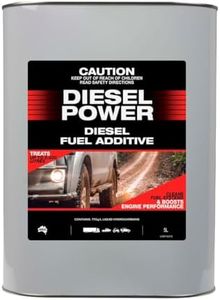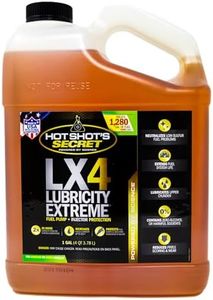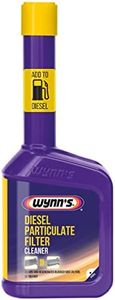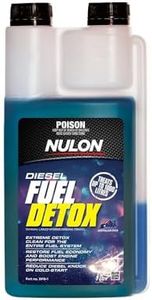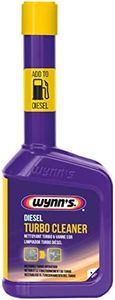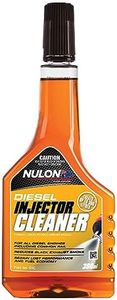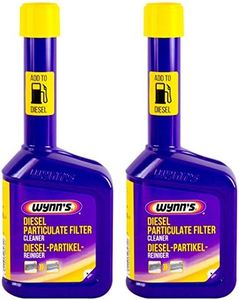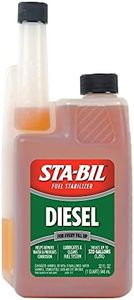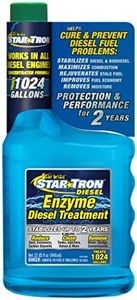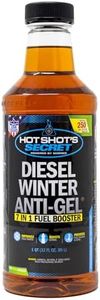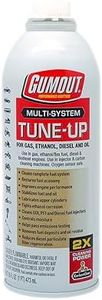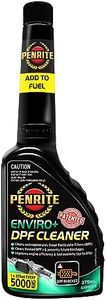We Use CookiesWe use cookies to enhance the security, performance,
functionality and for analytical and promotional activities. By continuing to browse this site you
are agreeing to our privacy policy
10 Best Diesel Fuel Additives
From leading brands and best sellers available on the web.By clicking on a link to a third party's website, log data is shared with that third party.
Buying Guide for the Best Diesel Fuel Additives
Diesel fuel additives can help improve the performance, longevity, and reliability of your diesel engine. These products are mixed with diesel fuel to address common issues such as cold weather starting, fuel system deposits, and water contamination. Choosing the right additive depends largely on the environment you're in, the age and type of your engine, and any specific problems you experience. Understanding the key specifications will help you select the best product tailored to your needs.Type of AdditiveThe type of diesel additive determines what problem it targets. There are several types, including cetane boosters to enhance ignition quality, anti-gel additives to prevent fuel from thickening in cold weather, lubricity enhancers for older engines, water dispersants to remove moisture, and cleaning agents for removing deposits. Choosing the right type depends on whether you're addressing a specific problem, like winter cold starts, or simply aiming for regular maintenance. Identifying your regular driving conditions and any issues your engine faces is the first step in picking the type that matches your needs.
Cetane Number ImprovementCetane number measures how easily diesel fuel ignites under pressure. A higher cetane number allows for smoother and more efficient engine operation. Additives can raise this number, which is especially helpful for older engines or for improving cold starts. Typical cetane numbers range from low (improves performance only slightly), medium, to high boost. If your vehicle struggles to start or runs rough, especially in cold weather, selecting an additive with a higher cetane number improvement may be beneficial. For most modern vehicles, standard or mid-level improvement is usually sufficient unless performance tuning is a priority.
Anti-Gel ProtectionDiesel fuel can gel or thicken in cold temperatures, causing starting issues. Anti-gel additives lower the temperature at which diesel solidifies. Some additives provide mild protection for cool climates, while others offer robust protection for very cold regions. If you live in an area with harsh winters, choose an additive with a strong anti-gel formula. Otherwise, a moderate level is usually enough for regions that only occasionally experience freezing temperatures.
Lubricity EnhancementModern diesel fuels can sometimes lack natural lubricants due to refinement processes. Lubricity-enhancing additives help reduce friction and wear in the fuel system, particularly in older engines. There are basic, mid-level, and high-level lubricity boosters available. If you have an older vehicle or use ultra-low sulfur diesel (ULSD), a high-lubricity additive is a good choice. For newer vehicles, basic or mid-level additives are typically suitable.
Water Removal/EmulsificationWater in fuel can lead to corrosion, poor combustion, and even engine damage. Additives may disperse or absorb water, helping eliminate moisture from the system. Some additives handle small amounts of water, while heavy-duty versions deal with higher contamination. If you drive in humid environments or your vehicle sits unused for long periods (which can lead to condensation in fuel tanks), prioritize water-fighting additives. Otherwise, occasional use is often enough for most people.
Cleaning AgentsOver time, diesel engines can develop carbon and deposit buildup, reducing efficiency. Cleaning additives work to dissolve these deposits, helping maintain performance and fuel economy. There are mild cleaners for regular maintenance and strong detergents for more significant cleaning needs. If your engine is newer or you already use good quality fuel, a maintenance-level cleaner should suffice. For older vehicles or if you notice loss of power or rough running, a high-strength cleaner may be more appropriate.
CompatibilityIt's important to ensure the additive is compatible with your engine type and meets any manufacturer requirements. Most additives list this information on their packaging. Some are designed for vehicles with advanced emission systems, while others are intended for off-road or older vehicles. Always double-check that the additive matches your engine's age, type, and technology to avoid any potential issues.

